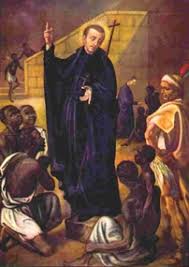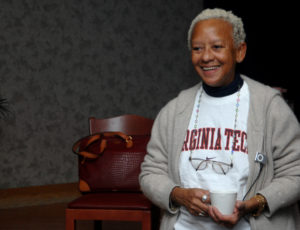Originally published in the Catholic Times September 10, 2017
Sometimes disparate events come together, touching a common place in my heart. Only after reflection and usually some writing, do I understand their connection and what they are saying.
************
Protests and violence in Charlottesville, Virginia, and the responses that followed uncovered what we’d rather avoid. Racism, anti-Semitism, and white supremacy raised their ugly heads reminding us that, no matter what we thought or what we want to believe, anger and hatred based on race, ethnicity, and fear of the “other” remain a blight on our country’s soul.
************
![By Gravure d'Antoine Maurin dit "Maurin l'aîné" (1793-1860) à partir d'un dessin de Louis Janmot (1814-1892) [Public domain], via Wikimedia Commons Pencil drawing of Blessed Fredric Ozanam](https://staging.maryvanbalen.com/wp-content/uploads/2017/09/Frédéric_Ozanam_2-220x300.jpg)
Blessed Fredric Ozanam
Perusing this week’s liturgical calendar, I discovered Blessed Fredric Ozanam (1813-1853). He moved to Paris at 18 to study at the Sorbonne. Conditions were wretched for the poor and working class. As a result of its old and public alliances with the aristocracy, the Catholic Church was attacked by intellectuals as oppressive and harmful. Ozanam had a different view. The Church was more than its hierarchy. It was all, clerics and lay alike, and he understood service to the poor as central to the call to discipleship. Actions must accompany words. He organized debates and argued that the Catholic Church had brought much good to the world.
There is a story that during one of these debates, when challenged to show what the Church was doing to help the poor and suffering in Paris, he had no answer. A few days later, Ozanam gathered a small group of Catholic students and together they began what would become the Society of St. Vincent de Paul. They were helped by Sister Rosalie Rendu who served the destitute in the Mouffetard area of Paris and insisted that the young students visit them in their homes and learn what was truly needed.

Saint Peter Claver
I read about St. Peter Claver (1581-1654), a Spanish Jesuit who found his life’s work in Cartagena, a hub of slave trade, in what is now Columbia. When slave ships arrived, he managed to get into the hold and minister to them with food, water, and medicine.
“Deeds come first, then words,” he said.
************

PHOTO: NASA
I joined two daughters, a friend, and other family to experience the eclipse in Columbia, South Carolina. We gathered with others in a school’s athletic field. The mood was festive and people moved in and out of the green space to observe the moon sliding in front of the sun. But, with fifteen minutes to go, they found a spot, put on eclipse glasses, and didn’t move.
When totality arrived, glasses came off. People clapped, shouted, cried, or stood in awed silence as the black disk of the moon covered the sun, revealing its brilliant corona. For those two minutes and thirty seconds, we were one people, small creatures on a single planet in the vast universe.
Of course, it didn’t last. Totality passed. Eventually people picked up their chairs and coolers and walked home or to their cars. The one family became tribes again.
************

Nikki Giovanni
Krista Tippett’s On Being podcast featured an interview with poet Nikki Giovanni. Tippett describes her as a “revolutionary poet in the Black Arts Movement that nourished civil rights.” Now in her seventies, Giovanni is joyfully alive, a professor at Virginia Tech, and still writing.
“…race was a bad idea 200 years ago, 300 years ago. It’s a ridiculous idea today,” she said in the interview. “Hatred was a bad idea, and it’s a ridiculous idea today. We’re on the third planet from the yellow sun. We have got to come together to see—and how to make sense out of this…How do we find a way to make the best of us?”
************
How indeed. How to root out hate and anger? How to stand with the marginalized and oppressed? How to bring Love into this time?
Ozanam, Rendu, and Claver saw what is often forgotten: Every person is a child of God deserving respect and love. They responded to physical needs as well as spiritual ones; actions accompany words. We are called to do the same, recognizing all are God’s people—Black, White, Latino, Indigenous people, refugees, LGBT, Jews, Muslims, prisoners, the poor. All one family on this planet. No exceptions. As Giovanni said, there is no place to go but forward. We do what we can. We love. We speak the truth we have been given. Bit by bit, we let go of what separates us and hold on to what binds us together. We listen. We pray. Like Mary, honored this week with the feast of The Nativity of Mary, we are called to birth Christ into the world.
© 2017 Mary van Balen


Mary, what a fine column. I was just reading a bit on Ozanam the other day. one wonders whether we will ever make much progress in beating racism, even in ourselves. with the immigration that we face all over, it has plenty to feed on.
Yes it does, Wilfred. Recognizing that the struggle with ignorance and fear of the “other” has long been with us isn’t exactly encouraging, but it does help us appreciate the deep roots of that problem in the human heart and mind. These days, much seems to feed the fear. And recognizing it in ourselves is difficult But you are right, it is there too.
Mary, what a fine column. I was just reading a bit on Ozanam the other day. one wonders whether we will ever make much progress in beating racism, even in ourselves. with the immigration that we face all over, it has plenty to feed on.